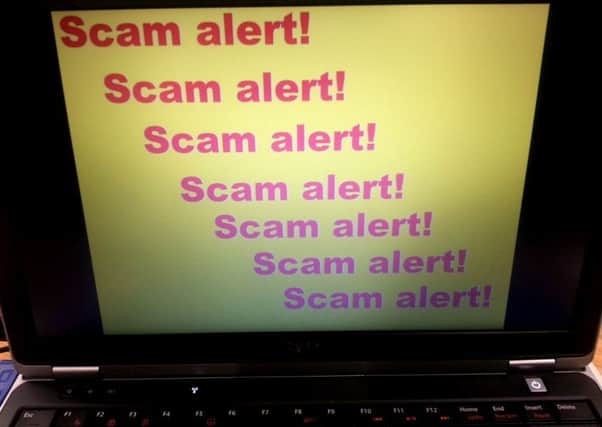Don't be a victim of scammers


Lincolnshire Trading Standards has launched a plan of action to keep Lincolnshire’s residents safe in support of Scam Awareness Month (July).
In a bid to reduce the number of people being duped by scams in the county, Lincolnshire Trading Standards are encouraging those who may have already been caught out by these scammers, to come forward and share their experiences and to help others know they are not alone.
Advertisement
Hide AdAdvertisement
Hide AdSo far this year, Police and Trading Standards officers have visited more than 150 residents from across the county whose names are known to scammers, as being people who they believe can be conned easily into parting with their cash. Officers warn of the dangers and help them spot the warning signs.
This month, they are encouraging people to share their knowledge and experiences of scams in a bid to raise awareness of the types of scams operating in their area, and reduce the number falling victim to them.
Kirsty Toyne, officer at Lincolnshire Trading Standards, says: “Getting caught out by a scam can feel embarrassing, but it’s surprising how many people get caught out on a daily basis. Whether it’s a letter offering you a cash prize in exchange for a small administration fee, a bogus phone call from someone claiming to be from a reputable organisation, a virus infected email or a rogue trader on your doorstep, there are so many types of scams. It’s so easy to get caught out, it can happen to anyone.
“So whether you’ve been targeted, or know someone who has, we want you to come forward and share your stories. Let others who have been scammed know they aren’t alone, and help us stop it from happening to more people by raising awareness.”
Follow the top tips below to spot a scam artist:
A scammer may:
contact you out of the blue|
Advertisement
Hide AdAdvertisement
Hide Admake promises that sound too good to be true - if something sounds too good to be true it probably is|
ask you to pay for something up-front - for example, they’ll ask you to pay a fee before you can claim a prize|
ask you to make a quick decision by saying things like ‘if you don’t act now you’ll miss out’. This puts you under pressure and doesn’t give you time to think|
be over-familiar and over-friendly with you|
tell you an offer has to be kept secret|
ask for your bank account details. Never give your bank details to people you don’t know, especially people you meet online|
Advertisement
Hide AdAdvertisement
Hide AdFor more advice visit: https://www.lincolnshire.gov.uk/residents/community-and-living/trading-standards/for-consumers/scam-aware/
If you suspect you have been targeted by a scam call Action Fraud on 0300 123 2040.